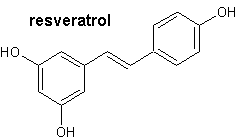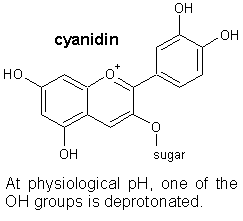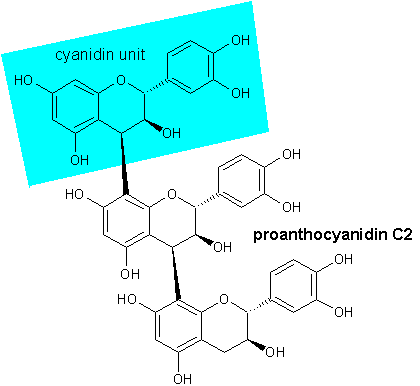What makes red wine good for you?
Jon Hamilton, Scientists Develop Life-Extending Compounds and related stories on NPR
Lisa Ganora, Flavanoid antioxidants, from The Phytochemistry of Herbs
A recent claim has been made that resveratrol, found in red wine (which gets it from the grape skins that give it its color), is the source of the claimed health benefits of red wine. Mice fed enormous amounts of the compound show a significant health benefit: obese mice live as long as normal mice.
However, there is some question as to whether resveratrol actually has the claimed effect in natural grape skins (or red wine); most nutritional scientists believe the effect comes from antioxidant flavanoids, specifically the proanthocyanidins and anthocyanidins which give grape skins (and red wine) their color. These doubts stem from the fact that you would have to drink 100-300 glasses of red wine a day to get the proportionate amount of resveratrol that the test mice were fed!
Compare the structures of resveratrol and cyanidin, below. How are they similar? Different? How might oxidation of proanthocyanidin C2 lead to cyanidin?


